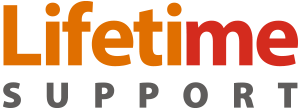(Gentle music)
Rebekah:
My name is Rebekah Pergold. So I had taken my grandparents out for lunch, because that's the best gift you can give your grandparents, is you.
Simon:
I had a house inspection booked, and I had to go, that's why I couldn't go for the lunch as well.
Rebekah:
As Papa was going out onto the road, he must have not seen the car coming or misjudged the timing.
Simon:
And I was just sitting on the sofa, watching the news, and I looked up (sniffs). I saw Rebekah's grandad's car.
News Reader:
Our emergency crews at the scene say the three injured all came from the sedan. Two female passengers are critically hurt, with police, at this stage, unable to confirm…
Jaime:
My name is Jaime, I am Beks' neighbour, and since they moved in next door to us, we've become very good friends. Seeing Simon worried the way that he was, was really concerning. I think a bit of the survival instinct kicked in. I went into fix it mode, rang around a lot of the hospitals, while my husband sat with Simon.
Rebekah:
When I came out of the coma, I found out that both of my grandparents had passed away in the accident, and then, of course, the brain injury.
Simon:
I don't think she recognised me. She was very different.
Rebekah:
With my smashed pelvis, they somehow had to hold my pelvis together, I had to have an external fixation on the outside, so Rodney was these big poles and rods, which is why I called him Rodney, and he was with me for about 10 weeks, until my hips and my pelvis healed. When I came home from hospital, it was nice to be in amongst the familiarity of home, but it was also scary, because I didn't have the support network that the hospital had provided me, but that's where Lifetime Support came in, because they were basically home hospital. Everything that I'd worried about, right down to my protein drinks that I used to have at the hospital, Lifetime Support took care of those things and made sure I had them. My service planner would visit once a week and we would be emailing every day, and it was just to check in, to see what I needed, to touch base and just to have a conversation, because being at home is quite isolating, so those visits were really appreciated, and I always knew that if any issues arose, that I could reach out and that together we would come up with a solution.
Jaime:
So even a couple of years on from the accident, Beks still talks about the positive effect that the team had on her recovery, and also the support that they provided to Simon, as her partner, throughout this whole process as well.
Rebekah:
There were many instances along my recovery journey, where I was always upset that I couldn't do something, because I kept comparing myself to how I was before the accident. Apparently, it's totally normal to compare yourself to who you were. I realised that in order for me to move forward, I had to shut the door on Beks, who I had been, and I became sort of Beks mark two, so anything I achieve now is something that I've achieved from where I began after the accident. I was not able to perform my full duties when I went back to work, and I still cannot perform those full duties now. We put a whole heap of strategies in place, and I went back to work, but I only went back to work for four hours a week initially, and then it increased to eight hours a week, and then it increased to ten, and now that I'm at work in the city, I meet my service planner for coffees and we have chats, and really, it's amazing what just comes up in general conversation. I can't even begin to comprehend what my recovery would have been like without the scheme. To navigate the health system, let alone rehabilitation within the health system, and for something as specialised as a brain injury. The services that I was able to receive through the recommendations of Lifetime Support were pivotal in my recovery and how quickly I recovered and how smoothly I recovered, and the peace of mind, you can't put a price on the peace of mind, and that's what Lifetime Support gave me.

